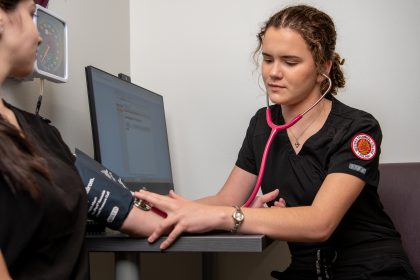A Glimpse into the Life of a Medical Assistant
In the intricate web of healthcare, medical assistants play a pivotal role in ensuring the smooth functioning of medical practices and clinics. Their days are filled with a variety of responsibilities, ranging from administrative tasks to patient care. Let’s take a closer look at the day in the life of a medical assistant, exploring the challenges they face and the rewarding moments that keep them motivated.
Morning Routine:
The day typically starts early for a medical assistant. As the doors of the medical facility open, they dive into their morning routine, which often involves preparing examination rooms, sterilizing equipment, and ensuring that all necessary supplies are stocked. This meticulous preparation sets the stage for the busy day ahead.
Administrative Duties:
Medical assistants wear many hats, and one of them is that of an administrative professional. They handle a variety of tasks, such as scheduling appointments, managing patient records, and coordinating communication between healthcare providers. This administrative backbone is crucial for the efficient functioning of medical practice.

Patient Interaction:
A significant part of a medical assistant’s day involves direct interaction with patients. From welcoming them to the clinic to taking vital signs and recording medical histories, these professionals create a comforting and organized environment for patients. Their friendly demeanor helps alleviate anxiety, making the healthcare experience more positive for everyone involved.
Assisting Healthcare Providers:
Medical assistants work hand-in-hand with healthcare providers, offering support during medical examinations and procedures. They ensure that the examination rooms are well-prepared, assist with minor surgical procedures, and communicate vital information between the patient and the provider. Their adaptability and ability to multitask are key assets in this dynamic role.
Laboratory and Diagnostic Procedures:
In addition to their administrative and clinical responsibilities, medical assistants often assist with various laboratory and diagnostic procedures. This may include collecting and preparing specimens, conducting basic laboratory tests, and explaining the purpose and process of diagnostic procedures to patients. Their versatility is a valuable asset in the ever-evolving field of healthcare.
Team Collaboration:
Collaboration is a cornerstone of effective healthcare delivery, and medical assistants are integral team members. They communicate with nurses, physicians, and other healthcare professionals to ensure a cohesive approach to patient care. This collaborative spirit fosters a positive work environment and contributes to better patient outcomes.
End of the Day:
As the day winds down, medical assistants wrap up their administrative tasks, update patient records, and ensure that the clinic is prepared for the next day. Reflecting on the challenges and successes of the day, they leave with a sense of accomplishment, knowing that their efforts contribute to the well-being of their patients and the smooth operation of the healthcare facility.
The life of a medical assistant is a dynamic and fulfilling journey that requires a unique blend of organizational skills, compassion, and adaptability. From the front lines of patient care to the behind-the-scenes administrative tasks, medical assistants play a crucial role in the healthcare ecosystem, bridging the gap between patients and providers. Their dedication and commitment to excellence make them unsung heroes in the realm of healthcare. Western Technical College provides essential training to these valuable heathcare team members. The full program is offered at the La Crosse, Wis. campus and now at our Tomah regional location. For more information about the program, visit www.westerntc.edu/medical-assistant.
